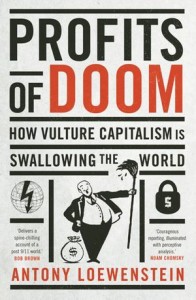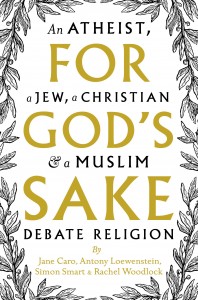Dear friends,
The children concentrated hard as they drew the blood spurting out of bodies, the helicopters firing bullets onto people below, the aeroplanes dropping bombs. They also drew weary palm trees, grey clouds and houses broken in two.
But it was one child’s depiction of the sun that really broke my heart. In this drawing, the scenes of war were graphically depicted in a typical child-like way, and in the top left-hand corner, watching on, was the sun. It was coloured bright yellow, with rays extending towards the earth. It had large blue eyes, with big eyelashes, and little red lips. It looked similar to the way many children around the world would draw the sun.
Except this sun, the sun in Gaza, had tears falling down its cheeks.
The sun was crying. In the mind of this little boy from Gaza, his view of our world is of chaos around him and a sun that is crying.
We were in a dim, concrete back room of a building in one of Gaza’s poorest neighbourhoods. The children, aged from 4 years to about 10 sat cross-legged in a circle and quietly drew their pictures as we looked on. They were not fidgeting, or playing up, or distracted by our presence. They were strangely silent as they carefully drew.
These children have been diagnosed as suffering acute post-traumatic stress disorder. We were at a play therapy group established by the Palestinian Trauma Centre. The Centre hopes to respond to the devastating impact that last year’s attack had on the children of Gaza; the children endured its missiles, bullets, bombs and screams, day in day out.
The teacher invited the children to stand up and, one by one, explain their pictures. Our host whispered the translation to us as they held their pictures and spoke matter-of-factly. After a minute of this, I turned my head to face the wall, so the children didn’t see me crying.
There were stories of being trapped under rubble in the dark and screaming and screaming some more and fighting their way out, only to find the bodies of their family lying dead in the ruins. There were stories of children holding the bodies of a parent, or grandparent after a missile attack, cradling them as life left their bodies. There were stories of sisters and brothers and cousins they used to have. And there were pictures of the houses they once lived in, now just rocks and rubble.
You can see some of the pictures here.
These are the stories of the little children of Gaza. Stories of things they should never see, or imagine, let alone experience for themselves.
But they did. And now the children of Gaza live the nightmare of trauma within a nightmare of occupation and siege. And it’s making them sick: sleepless, withdrawn, listless, angry. Physically ill.
The Palestinian Trauma Centre has conducted studies which conclude that most Palestinians in the Gaza Strip have been subjected to the symptoms of trauma and that 41% of children and their families are suffering serious mental illness and psychological disorders. Since the attack on Gaza last year, in which more than 1400 people were killed, including about 300 children, these figures would now be much worse.
There was another drawing that took my breath away. Created by a 10-year-old girl, it was simply a large eye on page. A carefully drawn eye: with black outline, eyebrows, and eyeballs coloured in light blue with a white pupil. And again there were tears falling from the eye. This time they were tears of blood, coloured dark red.
A child psychologist from the UK who was with us, observed how the drawing has none of the hallmarks of typical children’s pictures. He said the girl must have been in a state of psychosis when she drew it. Perhaps, like so many in Gaza, she had lost the will to live?
An eye with tears of blood and a sun that cries – these images are coming from deep within the little girls and boys of Gaza.
The little children of Gaza will grow up, one day.
Between now and then, I wonder, what has to be done to take the tears away?
Your pilgrim,
Donna

 Vulture capitalism has seen the corporation become more powerful than the state, and yet its work is often done by stealth, supported by political and media elites. The result is privatised wars and outsourced detention centres, mining companies pillaging precious land in developing countries and struggling nations invaded by NGOs and the corporate dollar.
Best-selling journalist Antony Loewenstein travels to Afghanistan, Pakistan, Haiti, Papua New Guinea and across Australia to witness the reality of this largely hidden world of privatised detention centres, outsourced aid, destructive resource wars and militarized private security. Who is involved and why? Can it be stopped? What are the alternatives in a globalised world?
Vulture capitalism has seen the corporation become more powerful than the state, and yet its work is often done by stealth, supported by political and media elites. The result is privatised wars and outsourced detention centres, mining companies pillaging precious land in developing countries and struggling nations invaded by NGOs and the corporate dollar.
Best-selling journalist Antony Loewenstein travels to Afghanistan, Pakistan, Haiti, Papua New Guinea and across Australia to witness the reality of this largely hidden world of privatised detention centres, outsourced aid, destructive resource wars and militarized private security. Who is involved and why? Can it be stopped? What are the alternatives in a globalised world? 

 The 2008 financial crisis opened the door for a bold, progressive social movement. But despite widespread revulsion at economic inequity and political opportunism, after the crash very little has changed.
Has the Left failed? What agenda should progressives pursue? And what alternatives do they dare to imagine?
The 2008 financial crisis opened the door for a bold, progressive social movement. But despite widespread revulsion at economic inequity and political opportunism, after the crash very little has changed.
Has the Left failed? What agenda should progressives pursue? And what alternatives do they dare to imagine?
 The Blogging Revolution, released by
The Blogging Revolution, released by  The best-selling book on the Israel/Palestine conflict,
The best-selling book on the Israel/Palestine conflict, 